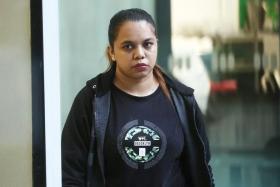Journalism's interaction with Pofma under scrutiny in TOC's appeal
What constitutes responsible journalism when reporting on allegations and how it would be practised under Singapore's laws against fake news came under examination yesterday, as the apex court heard The Online Citizen's (TOC's) appeal against a correction direction it received.
The socio-political site, which reported on a Malaysian rights group's claims of unlawful execution methods by prisons, said it should be enough that it asked the Home Affairs Ministry (MHA) for a response and indicated in the article that the claims were allegations.
TOC, represented by Mr Eugene Thuraisingam, argued it had not taken a position on the allegations. Given this, TOC did not deserve to be issued a correction order, the lawyer said. But the Attorney-General's Chambers said a responsible news outlet would have made reasonable attempts to verify information that could threaten public interest before publishing it.
TOC had sent an e-mail to MHA for verification moments before the article was published, leaving scant time for the ministry to respond, said Deputy Chief Counsel Hui Choon Kuen.
The issue of how the Protection from Online Falsehoods and Manipulation Act (Pofma) interacts with journalism was canvassed yesterday.
TOC was issued a correction direction in January over a story - quoting Lawyers for Liberty - that alleged Singapore's prison officers were told to kick the heads of death-row prisoners to snap their necks when the rope breaks during hanging, among other things. TOC filed an appeal under Pofma to have the correction direction set aside. This was dismissed by High Court Judge Belinda Ang.
Yesterday, Mr Thuraisingam said the Government should issue a correction direction when a news outlet refuses to carry its response. He said MHA had never replied to TOC's query.
Judge of Appeal Judith Prakash noted the nature of journalism entails pressure to publish in a timely fashion. Mr Hui said: "As a responsible journalist, if you report on something, and not just anything, but something that affects the public interest, you should make attempts to verify."
Chief Justice Sundaresh Menon suggested this "imposes quite a burden on responsible journalism". He posed a hypothetical scenario of a newspaper receiving information from a whistleblower which is a matter of public interest, but cannot report on it until it is proven.
"It worries me that you're saying Pofma allows the minister to come to a journalist and say you can't report that, or if you're going to report then you have to tell the world that you say it is untrue," he said.
He said this would mean a slew of things the media cannot bring to Singaporeans' attention until proven. Mr Hui voiced concern over allowing news outlets to publish any claim by qualifying them as allegations and indicating they asked the Government for comments.
As for whistleblowing, he said there are other ways to raise the issue and "mass communicating" is not the only way.
To this, the Chief Justice said: "I'm a tiny bit concerned, Mr Hui, that your suggestion is that Pofma was meant to protect Singaporeans from themselves. I don't think that is correct."
The Court of Appeal reserved judgment on the case.
FOR MORE, READ THE STRAITS TIMES
Get The New Paper on your phone with the free TNP app. Download from the Apple App Store or Google Play Store now


